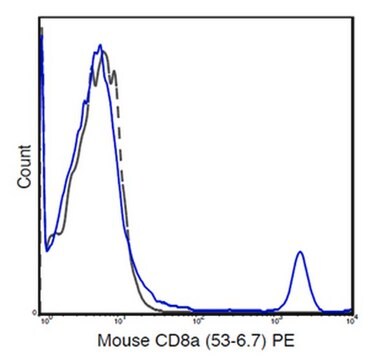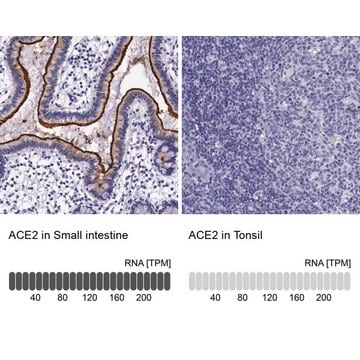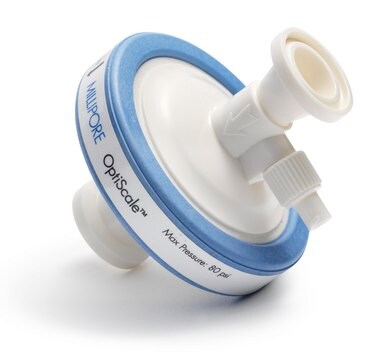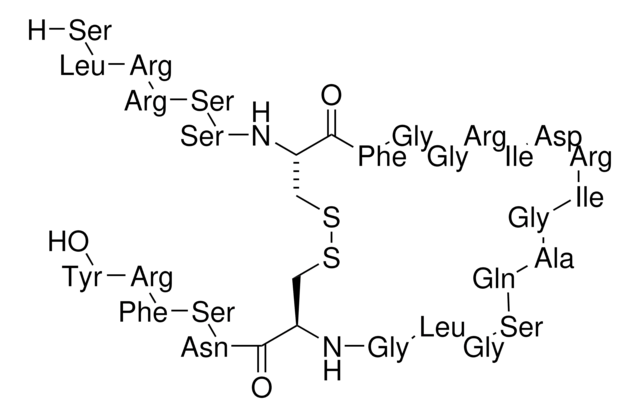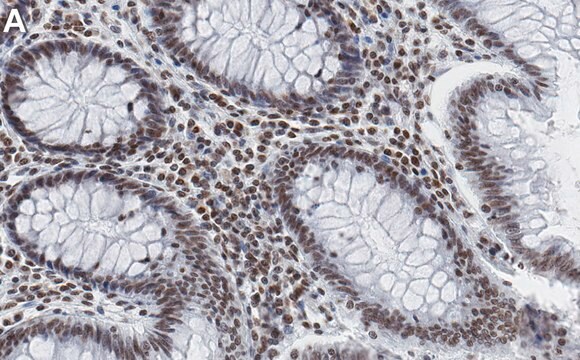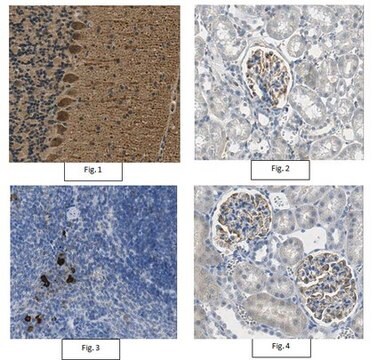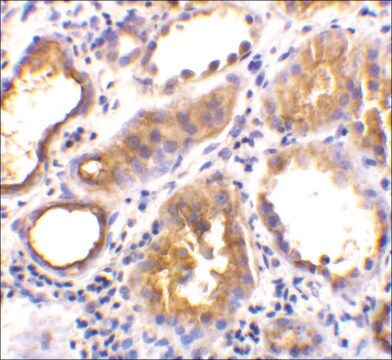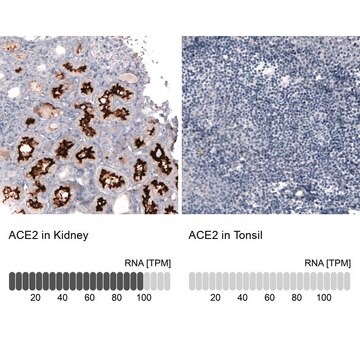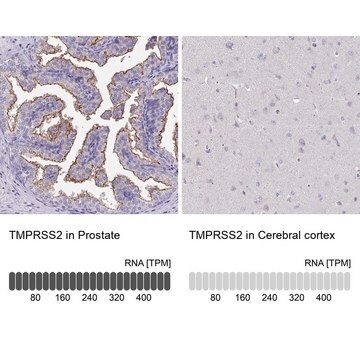MABF154A
Anti-CD8a (Mouse), FITC, clone 53-6.7 Antibody
clone 53-6.7, from rat, FITC conjugate
Synonim(y):
T-cell surface glycoprotein CD8 alpha chain, T-cell surface glycoprotein Lyt-2, CD8a, CD8a
About This Item
Polecane produkty
pochodzenie biologiczne
rat
Poziom jakości
białko sprzężone
FITC conjugate
forma przeciwciała
purified antibody
rodzaj przeciwciała
primary antibodies
klon
53-6.7, monoclonal
reaktywność gatunkowa
mouse
opakowanie
antibody small pack of 25 μg
metody
flow cytometry: suitable
izotyp
IgG2aκ
numer dostępu UniProt
docelowa modyfikacja potranslacyjna
unmodified
informacje o genach
mouse ... Cd8A(12525)
Opis ogólny
Immunogen
Zastosowanie
Inflammation & Immunology
Immunoglobulins & Immunology
Jakość
Flow Cytometry Analysis: 0.5 μg from a representative lot detected CD8a in one million C57Bl/6 splenocytes.
Postać fizyczna
Przechowywanie i stabilność
Note: It is recommended to store the product undiluted at 2-8°C and protected from prolonged exposure to light. Do not freeze.
Inne uwagi
Oświadczenie o zrzeczeniu się odpowiedzialności
Nie możesz znaleźć właściwego produktu?
Wypróbuj nasz Narzędzie selektora produktów.
Kod klasy składowania
12 - Non Combustible Liquids
Klasa zagrożenia wodnego (WGK)
nwg
Temperatura zapłonu (°F)
Not applicable
Temperatura zapłonu (°C)
Not applicable
Certyfikaty analizy (CoA)
Poszukaj Certyfikaty analizy (CoA), wpisując numer partii/serii produktów. Numery serii i partii można znaleźć na etykiecie produktu po słowach „seria” lub „partia”.
Masz już ten produkt?
Dokumenty związane z niedawno zakupionymi produktami zostały zamieszczone w Bibliotece dokumentów.
Nasz zespół naukowców ma doświadczenie we wszystkich obszarach badań, w tym w naukach przyrodniczych, materiałoznawstwie, syntezie chemicznej, chromatografii, analityce i wielu innych dziedzinach.
Skontaktuj się z zespołem ds. pomocy technicznej